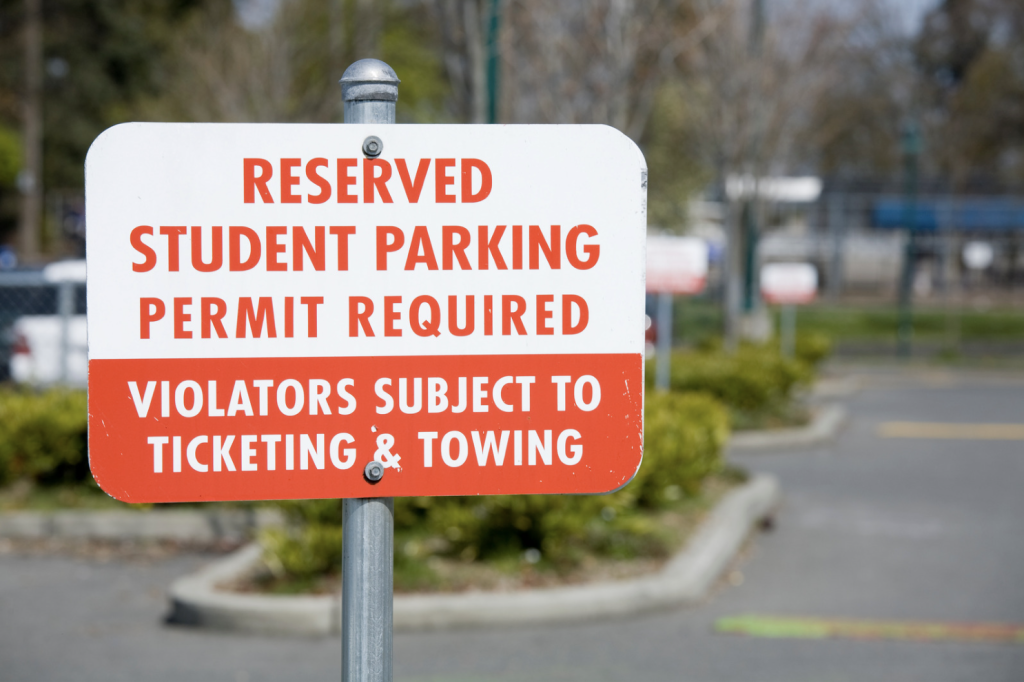 Moving to college represents an exciting milestone, but it also involves complex logistics, especially when bringing a vehicle to campus. Students attending universities hundreds or even thousands of miles from home face the challenge of shipping their cars to college safely and efficiently.
Moving to college represents an exciting milestone, but it also involves complex logistics, especially when bringing a vehicle to campus. Students attending universities hundreds or even thousands of miles from home face the challenge of shipping their cars to college safely and efficiently.
For many families, driving the vehicle to campus themselves creates additional stress, expense, and logistical complications during an already hectic transition period. For students and parents considering car shipping to college, this comprehensive guide covers everything you need to know about safely and affordably transporting a vehicle to university campuses nationwide.
Why Consider Car Shipping for College Students?
When facing the transition to campus life, many families will consider driving the student’s car to school as the default option. However, college student car shipping offers several significant advantages that make it worth serious consideration.
Professional auto transport eliminates the stress and logistical challenges of coordinating multiple drivers, accommodations, and return travel arrangements. It also prevents adding unnecessary mileage to your car during what could be a cross-country journey.
For students already managing the emotional and practical aspects of moving away from home, removing the responsibility of a long-distance drive allows them to focus on preparing for academic and social success. Parents also benefit from the peace of mind that comes with knowing their student’s vehicle is being handled by experienced professionals rather than risking exhaustion or unfamiliar driving conditions.
When facing the transition to campus life, car shipping for your college student offers several advantages over alternatives:
- Reduced wear and tear: Avoid adding hundreds or thousands of miles to your vehicle
- Time efficiency: Focus on preparing for the academic year rather than long-distance driving
- Logistical simplicity: Eliminate the need for multiple family members to drive vehicles
- Safety considerations: Avoid unfamiliar highways and potential driver fatigue
- Consolidated travel: Fly directly to campus while your vehicle arrives separately
Planning Timeline: When to Schedule Car Shipping to College
The auto transport industry experiences predictable seasonal patterns that directly impact availability and pricing throughout the academic year. Understanding these patterns is crucial for securing the best rates and ensuring your vehicle arrives on campus exactly when needed.
College transitions create some of the busiest periods in the auto transport industry, with thousands of vehicles moving to and from campuses nationwide during key weeks. Late August and early September see particularly high demand as fall semesters begin across the country, often leading to limited carrier availability and premium pricing. Planning your shipping timeline strategically around these peak periods can result in significant savings and a smoother overall experience.
Fall Semester (August-September)
- Booking window: Reserve 4-6 weeks in advance (by early July for late August arrival)
- Peak pricing period: Typically 10-15% higher than off-peak rates
- Carrier availability: Limited during the last two weeks of August
- Popular routes: Northeast to Florida campuses, California to East Coast schools
Spring Semester (January)
- Booking window: Schedule 3-4 weeks ahead (by early December)
- Weather considerations: Winter conditions may affect northern routes
- Carrier availability: Generally better than fall, except for the first week of January
Summer Break (May-June)
- Booking window: Reserve 3-4 weeks in advance
- Direction shift: Primarily campus-to-home transportation
- Pricing advantage: Often 5-10% lower than fall rates
Pro Tip: For significant savings, book your car shipping at least 4-5 weeks before your target delivery date, especially for fall semester moves.
Campus-Specific Considerations for Auto Transport

Universities have varying policies and logistical challenges regarding vehicle delivery. Understanding these campus-specific factors before booking your transport services allows you to anticipate potential obstacles, coordinate with university administration when necessary, and select delivery options that align with the particular constraints or advantages of your student’s campus setting.
Urban Campus Challenges
- Limited access: Many city campuses have restricted truck access
- Permit requirements: Some universities require advance permission for commercial deliveries
- Alternative delivery points: Nearby shopping centers or parking facilities may be necessary
Rural Campus Advantages
- Better access: More space for transport trucks to maneuver
- Flexible delivery: Often allows direct delivery to campus parking lots
- Fewer restrictions: Typically less red tape regarding commercial vehicle access
Dormitory vs. Off-Campus Living
- Parking permits: Many dormitories require specific parking permits
- Storage options: Limited for on-campus residents during breaks
- Off-campus considerations: Apartment complexes may have delivery restrictions
Required Documentation for Car Shipping to College
Proper documentation serves as the foundation for a smooth and legally compliant experience when shipping a car to college. Missing or incomplete paperwork can lead to costly delays, delivery refusals, or administrative complications with campus security or parking authorities. Ensure you have these essential documents prepared:
- Vehicle registration: Current and valid
- Proof of insurance: Updated policy information
- Campus parking permit: Obtain in advance if required
- Student identification: May be needed for campus access
- Transport company contract: Fully reviewed and signed
- Payment confirmation: Keep receipts for all transactions
Most Popular College Car Shipping Routes and Estimated Costs
Based on Direct Connect Auto Transport’s historical data, these routes see high demand during academic transitions:
Northeast to Southern Schools
- New York to University of Florida (Gainesville): $700-$900
- Boston to University of Miami: $800-$1,000
- Philadelphia to University of Georgia (Athens): $650-$850
West Coast to East Coast
- Los Angeles to Boston University: $1,100-$1,400
- San Francisco to Duke University (Durham, NC): $1,200-$1,500
- Seattle to NYU (New York City): $1,300-$1,600
Midwest Connections
- Chicago to Arizona State University (Tempe): $800-$1,000
- Detroit to University of Texas (Austin): $750-$950
- Minneapolis to University of Colorado (Boulder): $700-$900
Note: Prices reflect open carrier transport for standard-sized vehicles during typical conditions. Enclosed transport and premium services will increase costs. Rates current as of 2024 but subject to market fluctuations.
Special Student Discounts for Auto Transport
Many car shipping companies offer programs specifically for college students who are interested in shipping their car to campus. Be sure to ask about these programs:
- Student verification discounts: 5-10% off with valid student ID
- First-time shipper programs: Special rates for first-time customers
- Return customer benefits: Discounts for semester-to-semester transport
- Parent referral programs: Credits for referring other families
- Greek organization partnerships: Fraternity and sorority member discounts
Direct Connect Auto Transport offers a dedicated student discount program to help make vehicle transportation more affordable for college families.
Learn about our student discount programs
Preparing Your Vehicle for Campus Delivery
Follow these essential steps when preparing for car shipping to college:
Pre-Transport Checklist
- Clean your vehicle: Thoroughly wash the exterior
- Document condition: Take dated photos of all sides of the vehicle
- Remove personal items: College belongings must ship separately
- Secure or remove accessories: Detach bike racks, removable stereos, etc.
- Check fluid levels: Ensure no leaks that could delay transport
- Maintain proper fuel level: Keep to 1/4 tank (required by transporters)
- Address maintenance issues: Fix any operational problems before shipping
- Disable alarms: Prevent battery drain during transport
Campus Arrival Inspection
- Thorough examination: Check all vehicle surfaces in good daylight
- Immediate documentation: Note any discrepancies before signing
- Functional check: Verify all systems work properly
- Cleaning needs: Schedule wash if necessary after delivery
Open vs. Enclosed Transport for College Vehicles
The method of transportation for your student’s car shipping can significantly impact both its protection during transit and the overall cost of the shipping service. This critical decision involves weighing financial considerations against the level of security desired, especially when transporting newer, more valuable vehicles over long distances. When considering auto transport for students, two primary options exist:
Open Transport (Most Popular)
- Cost-effective: 30-35% less expensive than enclosed options
- Wider availability: More carriers and flexible scheduling
- Suitable for: Most standard vehicles used by students
- Average cost: $0.75-$1.25 per mile depending on distance
Enclosed Transport (Premium Option)
- Enhanced protection: Complete coverage from weather and road debris
- Added security: Better for high-value or luxury vehicles
- Limited availability: Fewer carriers, especially during peak seasons
- Premium pricing: Typically $1.25-$2.00+ per mile
Most recommended: For typical student vehicles, open transport provides the best balance of affordability and service quality. Reserve enclosed transport for luxury, classic, or highly customized vehicles.
Door-to-Door vs. Terminal Options for Campus Delivery
How and where your student’s car is ultimately delivered is one of the most important decisions, directly affecting both convenience and final costs. While the convenience of direct campus delivery appeals to many families, understanding the complete spectrum of delivery options, including their respective advantages and limitations, allows you to make the most practical choice for your family.
Door-to-Door Service
- Campus convenience: Delivery as close to student housing as possible
- Time efficiency: No need to travel to a terminal location
- Scheduling flexibility: Coordinate directly with the driver
- Cost premium: Typically 10-15% more than terminal options
- Access limitations: Some campuses restrict large transport trucks
Terminal-to-Terminal Service
- Cost savings: Reduced rates compared to door-to-door
- Scheduling challenges: Must arrange pickup within terminal business hours
- Distance considerations: Terminals may be far from campus
- Transportation needs: Requires arrangement to/from terminal locations
Best for most students: Door-to-door service typically provides the best value despite the higher cost, eliminating the need for additional transportation arrangements to/from terminals.
Special Considerations for International Students
International students bringing cars to U.S. campuses face extra hurdles beyond what domestic students deal with. They need to handle not just regular car shipping logistics, but also navigate international shipping rules, clear customs, and make sure their vehicles meet U.S. standards.
Getting a car from another country to campus takes more time, paperwork, and planning than domestic shipping, which is why it’s usually best to work with shipping companies that know the ins and outs of international auto transport. For international students bringing vehicles to U.S. campuses, keep these factors in mind:
- Import regulations: Vehicles must comply with U.S. safety and emissions standards
- Documentation requirements: Additional paperwork beyond domestic shipping
- Customs clearance: Processes vary based on country of origin
- Long-term planning: Allow 2-3 months for the entire process
- Registration requirements: State-specific regulations for foreign vehicles
Storage Options During Academic Breaks

When shipping a car to college, students must plan for breaks when campus parking may be restricted. Creating a plan for these periodic transitions saves both stress and potential expenses throughout the academic year.
Winter Break Solutions
- Off-campus storage facilities: Typically $100-$200 per month
- Extended campus permits: Some universities offer break parking options
- Local arrangements: Agreements with nearby businesses or residents
- Return shipping: Some students ship vehicles home for longer breaks
Summer Storage Options
- Long-term facility rentals: Discounted rates for 3+ months
- Subletting arrangements: Leaving the vehicle with summer residents
- Return transport scheduling: Book early for best rates on summer returns
Insurance Considerations for College Car Shipping
When shipping a car to college, it’s important to understand how insurance works throughout the transportation process. Students and parents need to know about three key coverage types: the shipping company’s liability insurance, your personal auto policy, and any optional protection plans.
Getting clear on how these work together helps ensure your vehicle is fully protected if something goes wrong during shipping. While good auto transport companies provide basic coverage, the details, like coverage limits, deductibles, and how to file claims, differ between companies. For more expensive or newer cars, this standard coverage might not be enough, so you may need to arrange additional protection for complete peace of mind.
- Carrier liability coverage: Typically includes basic protection
- Valuation declarations: Accurately report vehicle value
- Supplemental options: Consider additional coverage for high-value vehicles
- Policy verification: Confirm personal auto insurance covers shipping damage
- Deductible awareness: Understand your responsibility in case of claims
Parent’s Guide: Managing the Car Shipping Process Remotely
For parents helping with car shipping while not physically present at pickup or delivery locations, staying organized and connected is key to a smooth process. Managing vehicle transportation from a distance creates challenges that go beyond normal shipping concerns, making good communication and digital tools essential for keeping track of everything. Keep these factors in mind:
- Digital documentation: Use smartphone apps to document vehicle condition
- Remote scheduling: Online booking and tracking systems
- Payment security: Use credit cards for better purchase protection
- Communication planning: Three-way coordination between parent, student, and company
- Local support: Campus resources if students need assistance with delivery
How to Choose a Reliable College Car Shipping Company
Finding the right auto transport service is one of the most important decisions when shipping a car to college. It affects everything from cost and delivery timing to the safety of your vehicle. With many companies offering what looks like the same service, it takes some research to find transporters who truly specialize in campus deliveries.
The best companies for college car shipping have proper licensing and insurance, but they also understand the unique aspects of campus deliveries, like working around academic calendars, navigating university-specific delivery restrictions, and addressing the particular concerns of students and parents sending vehicles across long distances.
Essential Qualifications
- Campus experience: History of university deliveries
- Insurance coverage: Adequate protection for your vehicle’s value
- DOT registration: Valid Department of Transportation authority
- Student-specific services: Understanding of academic calendars and campus requirements
- Transparent pricing: Clear explanation of all costs
Red Flags to Avoid
- Unusually low estimates: Often indicate hidden fees
- Excessive deposits: Should not exceed 10-15% of total cost
- Poor communication: Difficulty reaching representatives
- Limited tracking options: No way to monitor vehicle progress
- Missing credentials: No DOT number or inadequate insurance
Direct Connect Auto Transport specializes in student car shipping services with a proven track record of reliable campus deliveries nationwide.
Preparing for a Smooth College Transition
Shipping your vehicle to campus requires advance planning, but the convenience and protection it provides make it well worth considering. By understanding the process, preparing properly, and selecting a reputable carrier with college student car shipping experience, you can ensure your vehicle arrives safely for the upcoming academic year.
Direct Connect Auto Transport specializes in student vehicle relocations with service to every major university and college campus nationwide. Our experienced team understands the unique requirements of campus deliveries and works closely with students and parents to ensure a smooth process.
Get Your Free College Car Shipping Quote Today
Starting your college journey is exciting enough without the added stress of long-distance driving. Let us handle the vehicle transportation while you focus on what matters most, preparing for your academic success.
Get an instant quote for college car shipping
Pro Tip: Mention your student status when requesting a quote to learn about all available discount programs.
Frequently Asked Questions About College Car Shipping
How far in advance should I book car shipping to my college?
For fall semester (August-September), book 4-6 weeks in advance. For spring semester, 3-4 weeks is typically sufficient. During peak seasons, earlier booking ensures better rates and availability.
Can I pack personal items in my car during shipping?
No. Department of Transportation regulations prohibit carriers from transporting personal belongings inside vehicles. Additionally, items could shift during transit and cause damage.
Will my car be driven during the shipping process?
Minimally. The vehicle will be driven during loading and unloading, typically just a few hundred feet. The odometer reading is documented before and after transport.
How do I track my vehicle during shipping?
Most reputable auto transport companies provide online tracking systems or regular status updates. Direct Connect Auto Transport offers real-time tracking and proactive communication throughout the process.
Do I need to be present when my car is delivered to campus?
Yes, either you or an authorized representative (like a parent or roommate) must be present to inspect the vehicle and sign the delivery documents.
Can I ship my car to any college campus?
Most campuses can accommodate delivery, though urban universities often have restrictions on large transport vehicles. Your transport company should research specific campus requirements in advance.
Does my car need to be registered in the college’s state?
Requirements vary by state and how long the vehicle will be there. Many states provide exemptions for full-time students, but you should check your college’s specific policies.


